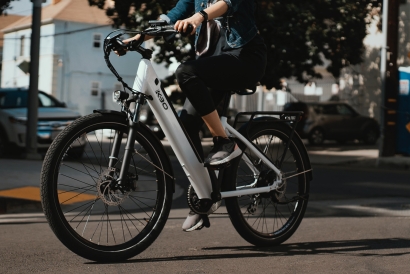
Sustainability is playing an increasingly important role in all of our lives. Temperatures recently exceeded 40°C for the first time ever in the UK, a clear sign that climate change is having a tangible impact. By becoming more sustainable, we can limit the levels of damaging emissions that we produce and slow down the process of climate change. Preventing climate change at home starts with making more sustainable consumption decisions.
Transport emissions in the UK fell by a staggering 19.6% in the first year of the pandemic, proving that how we travel plays a significant role in the amount of emissions we produce. Choosing an electric car or bike would allow users to cut down drastically on the emissions created by burning fossil fuels, but which one is best for you? This depends on a few factors:
One of the most visible differences between the two types of transport is their size and capacity. A bike is inevitably a lot smaller than a car, which is ideal for reducing your emissions. Not only do more bikes fit on the road, saving a lot of space, but you don't need as big a garage. Parking and storage are easier, and you can use any spare garage or driveway as a hobby space or even a small eco-friendly garden.
The amount of energy each of the systems requires varies significantly. After all, a car is made up of more than a tonne of metal, so of course, the amount of energy it uses is significantly greater than a bike. For instance, an electric car costs around 160 times more to charge than an e-bike. If you don't need to transport many items or don't need to drop children off at school, a bike is ideal, which could make it a good solution for commuting to work or the gym.
The range of both transport methods varies significantly. Current electric cars can travel hundreds of miles on a single charge since they have large banks of batteries making up a significant amount of the car's weight. On the contrary, an electric bike has a smaller battery – whilst this is ideal for bike storage, it means that you will have a significantly lower range. For people with long commutes or that travel a lot, this makes a car an ideal option with a bike thriving in a short-range urban environment.
Author bio: James Ritter
I am a digital consultant with a particular interest in sustainability, and have advocated for content focussing on both local and global environmental issues. I majored in creative writing at university, and am always eager to expand my knowledge around different subjects.

